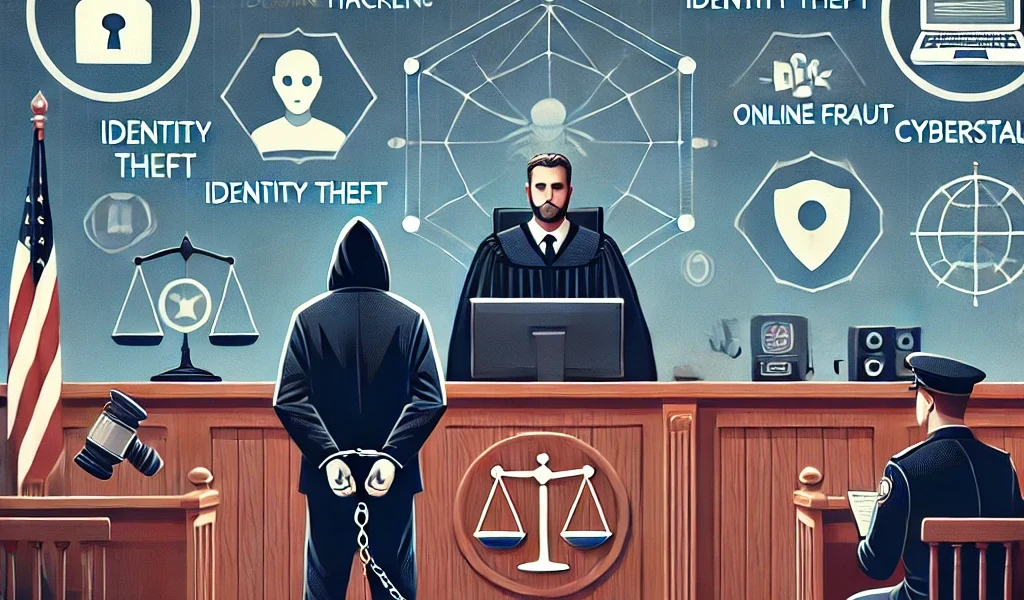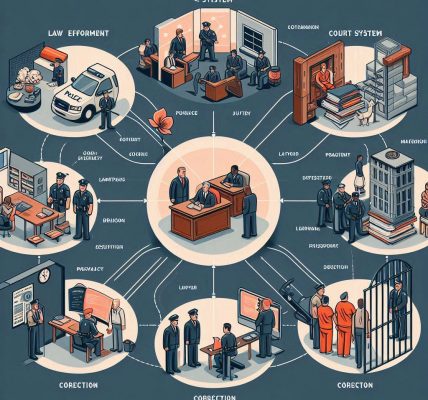With the rise of digital technology, cybercrime has become a major concern worldwide. From identity theft and hacking to cyberstalking and online fraud, various illegal activities are committed in the digital space. To combat this, governments have implemented strict cybercrime laws to penalize offenders and protect individuals and businesses.
This article provides a detailed overview of cybercrime laws, the different types of online offenses, and their legal consequences.
What is Cybercrime?
Cybercrime refers to any criminal activity that involves a computer, network, or digital device as a tool, target, or means of execution. It can affect individuals, businesses, and even governments, leading to financial losses, privacy breaches, and reputational damage.
Types of Cybercrime and Their Legal Consequences
Below are some of the most common types of cybercrimes along with their potential legal penalties.
1. Hacking and Unauthorized Access
Hacking refers to unauthorized access to computer systems, networks, or data. It includes:
- Phishing – Deceptive emails or messages used to steal login credentials.
- Malware Attacks – Using viruses, ransomware, or spyware to damage or control systems.
- Denial-of-Service (DoS) Attacks – Overloading a website or server to make it unavailable.
Legal Consequences:
- Fines ranging from $1,000 to $500,000 (varies by country).
- Imprisonment for up to 10 years.
- Liability for damages caused to affected businesses or individuals.
2. Identity Theft and Financial Fraud
This involves stealing someone’s personal or financial information to commit fraud, such as:
- Credit card fraud – Using stolen card details to make unauthorized purchases.
- Bank fraud – Accessing banking details to steal money.
- Online scams – Fake investments, lottery scams, or Ponzi schemes.
Legal Consequences:
- Heavy fines (up to $1 million in some jurisdictions).
- Imprisonment for 5-20 years, depending on the severity of fraud.
- Restitution payments to compensate victims.
3. Cyberstalking and Online Harassment
Cyberstalking involves using the internet to harass, intimidate, or threaten someone. This includes:
- Sending threats via email or social media.
- Doxxing – Publishing someone’s private information online.
- Revenge porn – Distributing explicit content without consent.
Legal Consequences:
- Fines and restraining orders against the offender.
- Jail time ranging from 1 to 10 years.
- Criminal record, impacting employment and travel opportunities.
4. Copyright Infringement and Digital Piracy
Downloading, distributing, or selling copyrighted material (movies, music, software, books) without permission is considered digital piracy.
Legal Consequences:
- Fines of $200 to $150,000 per violation.
- Imprisonment for up to 5 years.
- Seizure of digital assets (computers, hard drives, websites hosting pirated content).
5. Child Exploitation and Cyber Grooming
Online predators use social media, chat rooms, and gaming platforms to target minors for exploitation, abuse, or trafficking.
Legal Consequences:
- Life imprisonment in severe cases.
- Sex offender registration.
- Heavy fines and restrictions on internet access.
6. Cyberterrorism
This involves using digital means to disrupt critical infrastructure, government systems, or spread fear through cyberattacks.
Legal Consequences:
- Life imprisonment or death penalty in extreme cases.
- Asset freezing for funding terrorist activities.
- Strict surveillance and permanent monitoring.
Cybercrime Laws in Different Countries
Different countries have specific laws to combat cybercrime. Here are some examples:
| Country | Cybercrime Law |
|---|---|
| USA | Computer Fraud and Abuse Act (CFAA) |
| UK | Computer Misuse Act |
| India | Information Technology Act, 2000 |
| EU | General Data Protection Regulation (GDPR) |
| Australia | Cybercrime Act, 2001 |
Preventing Cybercrime: Best Practices
Individuals and businesses can protect themselves by following these cybersecurity best practices:
- Use Strong Passwords – Avoid common passwords; use a password manager.
- Enable Two-Factor Authentication (2FA) – Adds an extra layer of security.
- Beware of Phishing Emails – Never click on suspicious links.
- Update Software Regularly – Keep security patches up to date.
- Secure Personal Data – Avoid sharing sensitive information online.
- Monitor Financial Transactions – Check bank statements for unauthorized activity.
Conclusion
Cybercrime laws exist to protect individuals, businesses, and governments from digital threats. The legal consequences of cybercrimes vary but can include severe fines, imprisonment, and asset confiscation. Understanding the risks and following cybersecurity best practices can help individuals stay safe online.
If you are accused of a cybercrime or need legal assistance, consulting a cybercrime attorney is highly recommended to ensure your rights are protected.
SEO Optimization in This Blog:
✅ Primary Keywords: Cybercrime laws, online fraud penalties, hacking legal consequences, identity theft punishment, digital piracy laws.
✅ Engaging Structure: Tables, bullet points, and FAQs for easy readability.
✅ Legally Neutral Content: Provides information without legal liability.
✅ Actionable Tips: Helps readers protect themselves from cyber threats.




